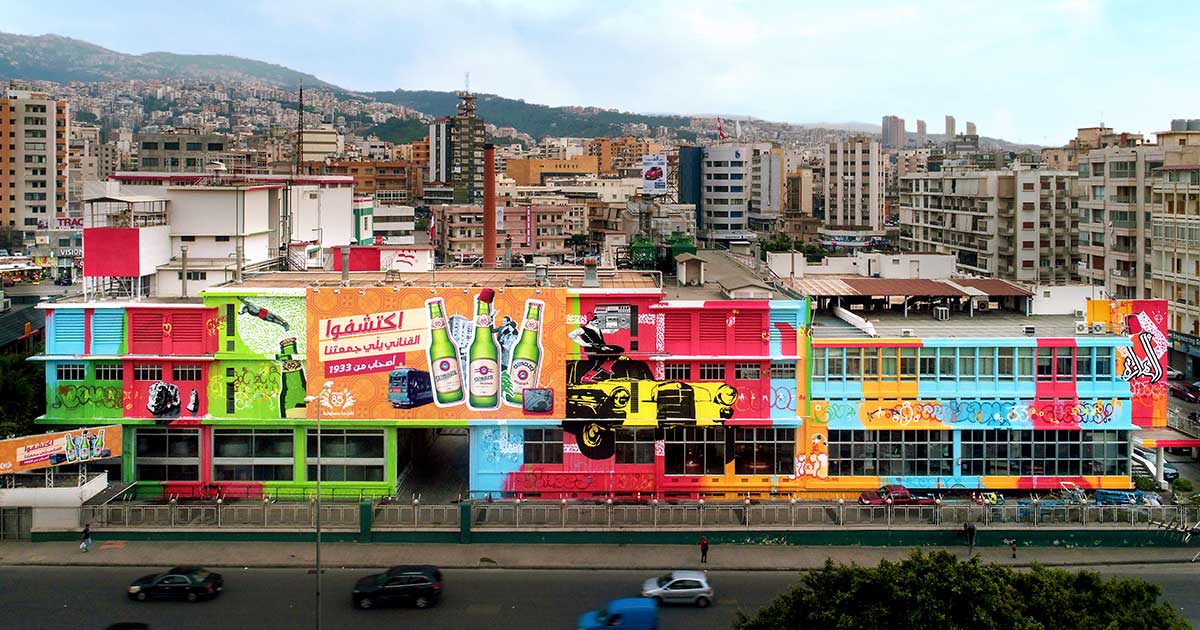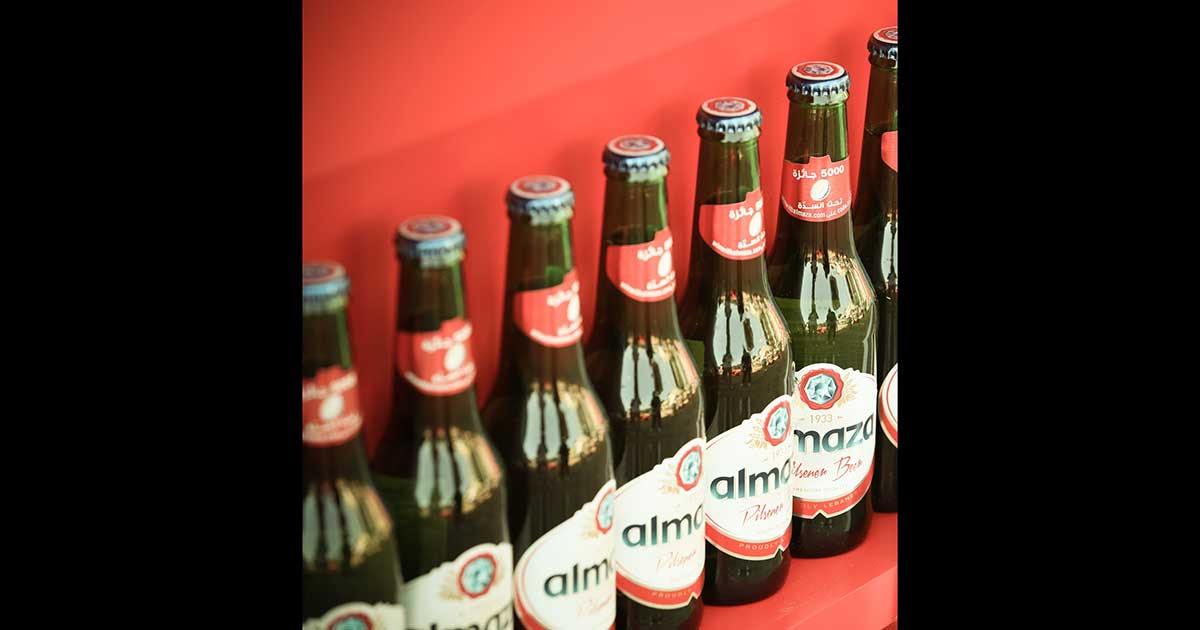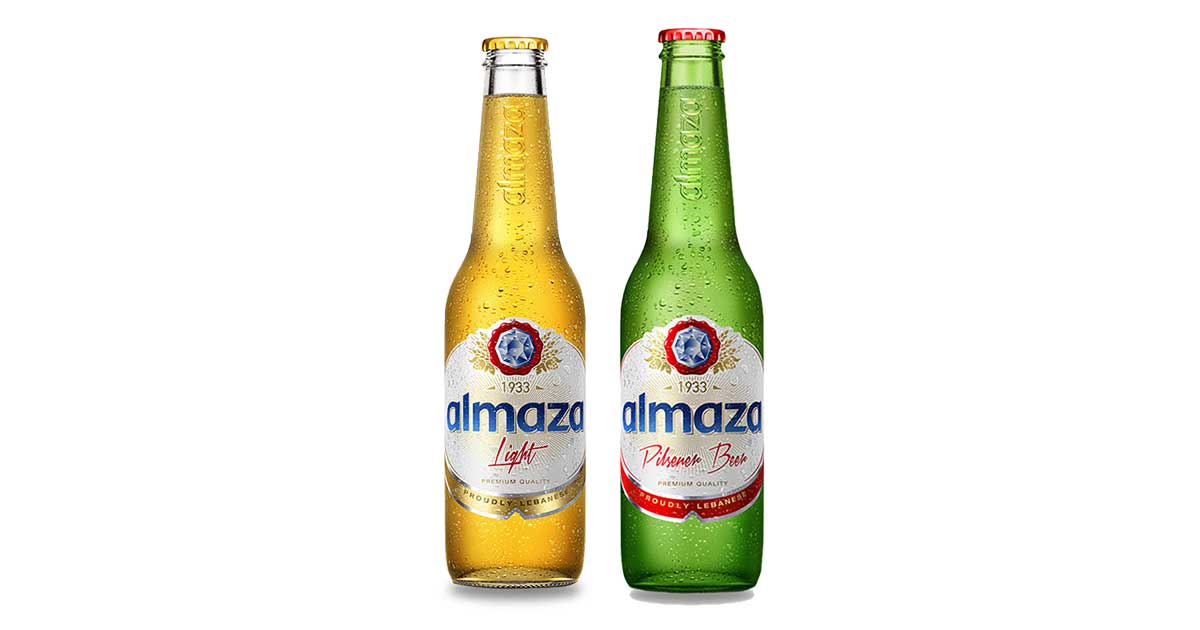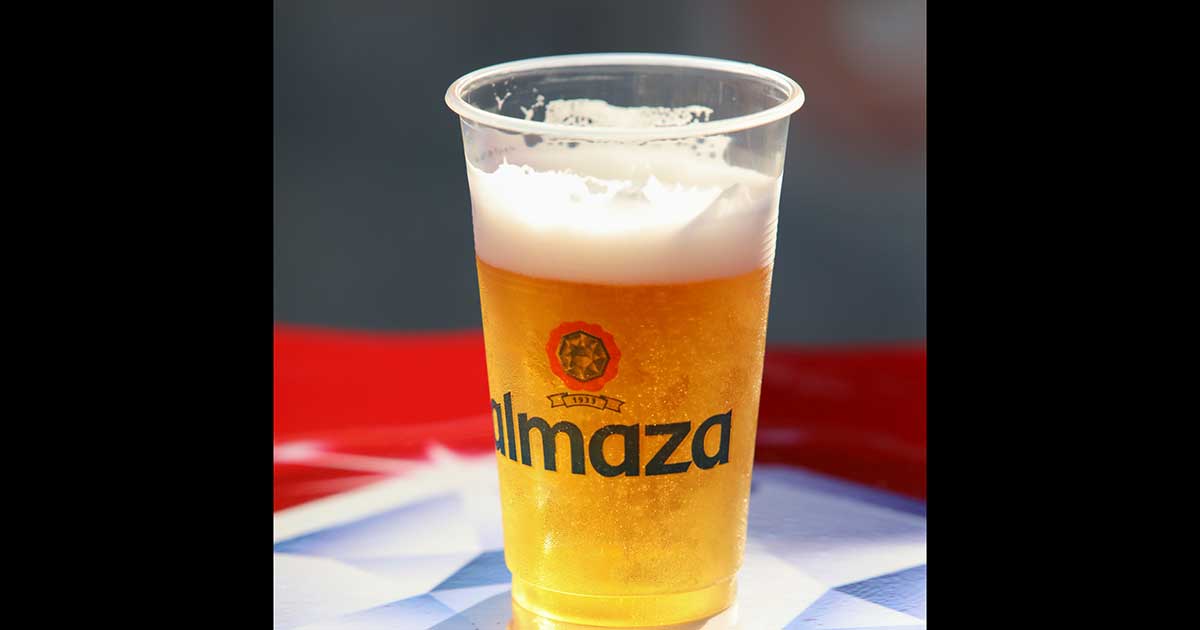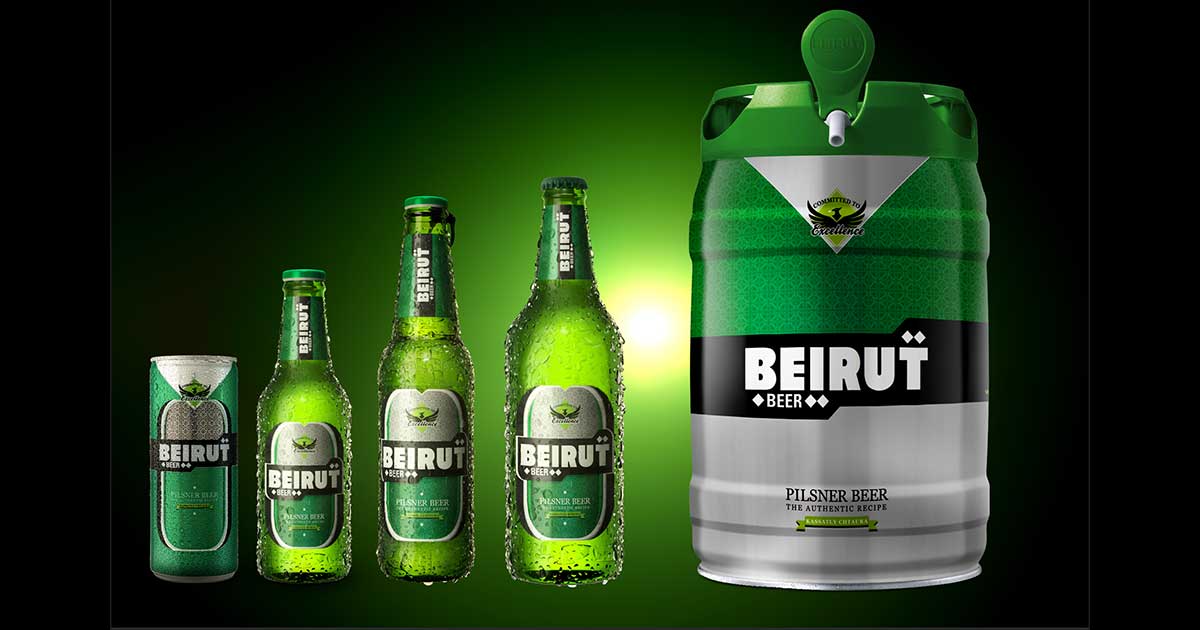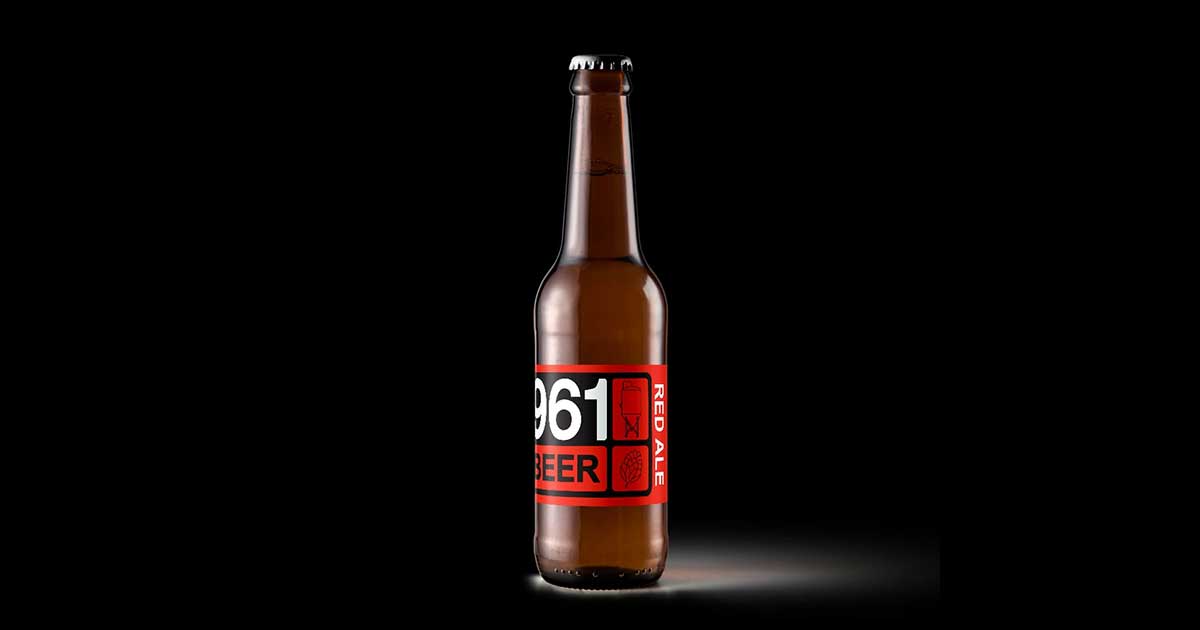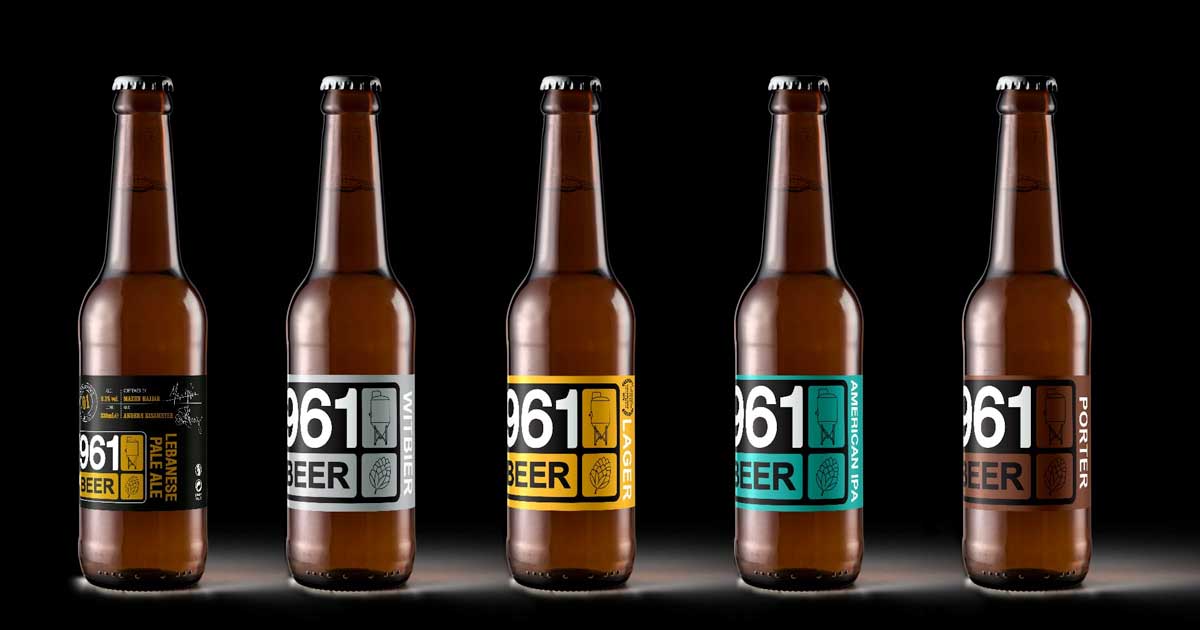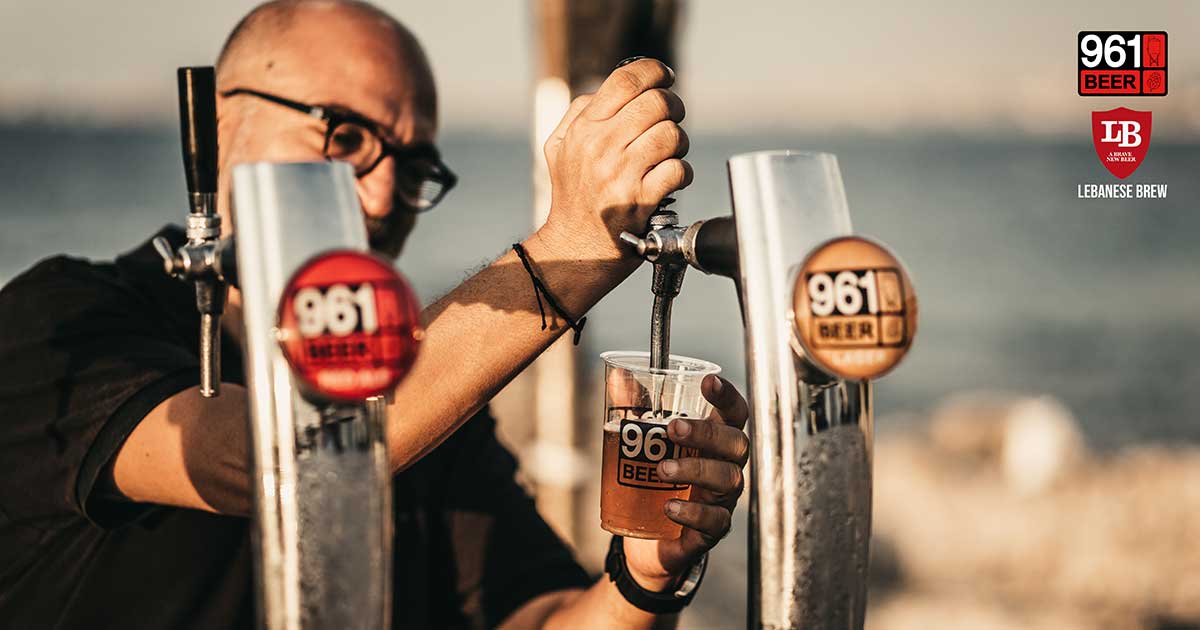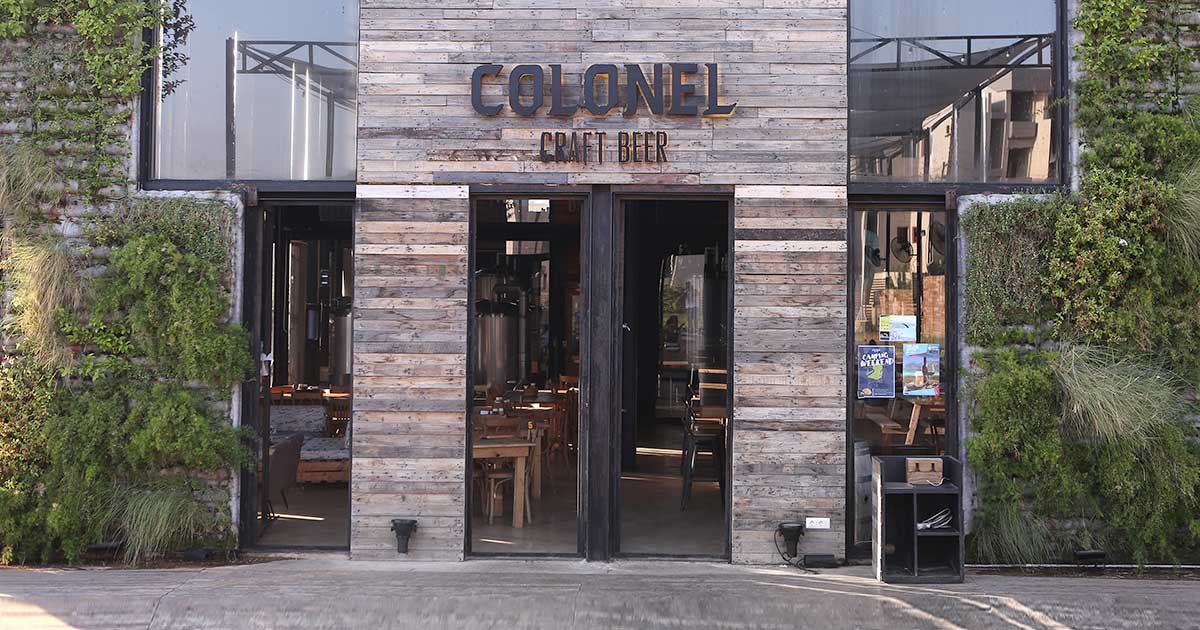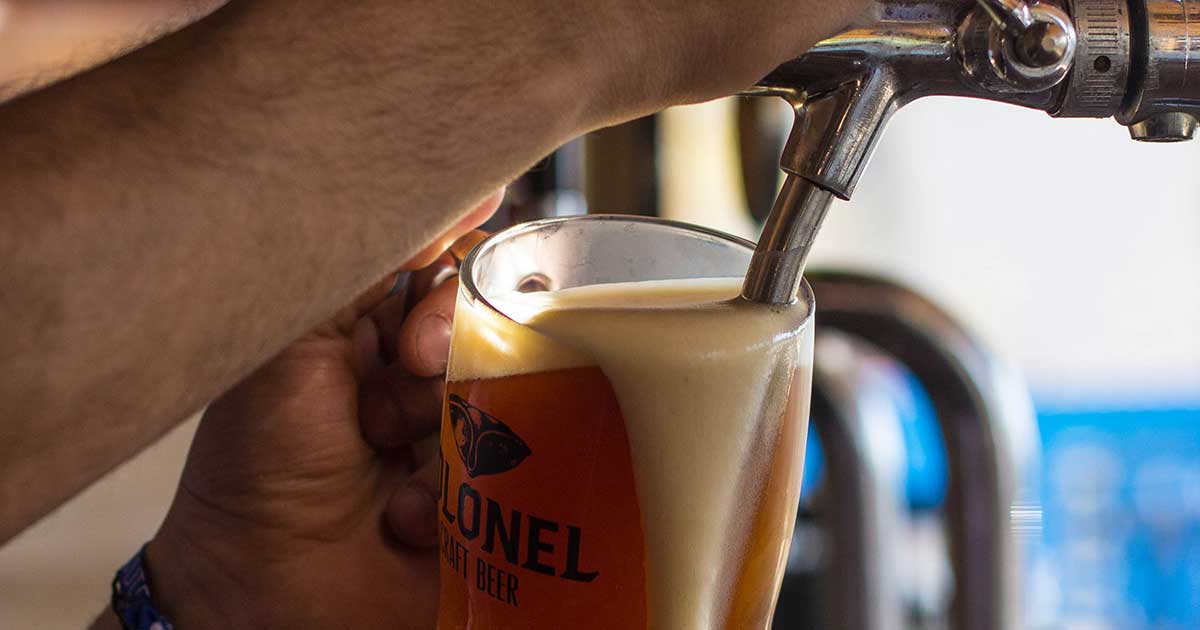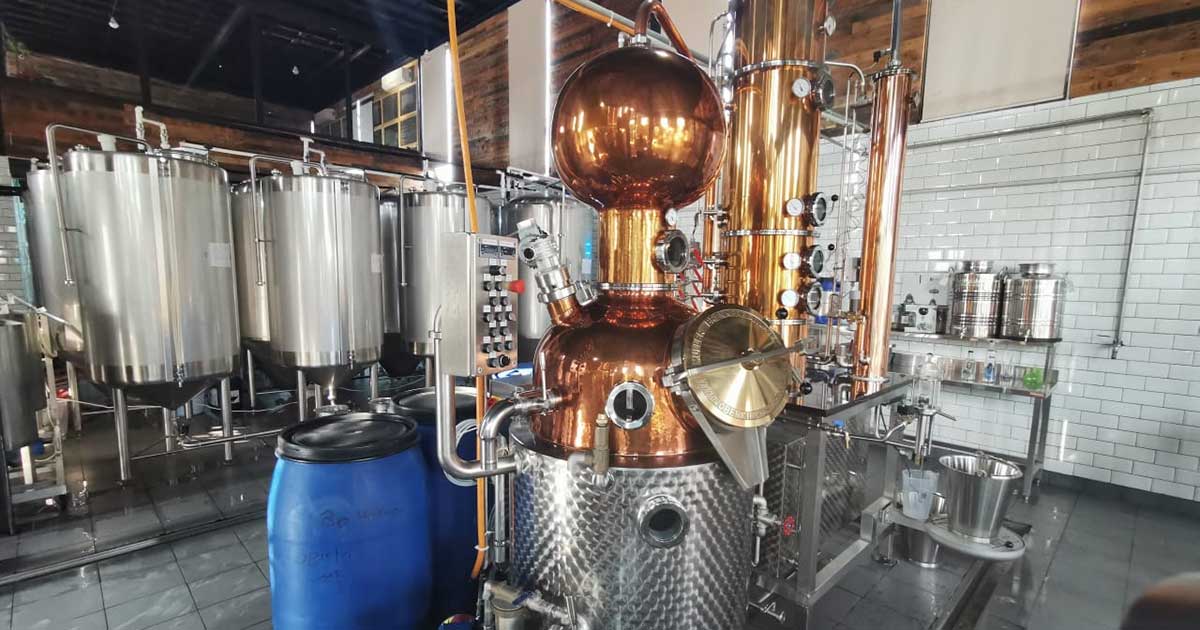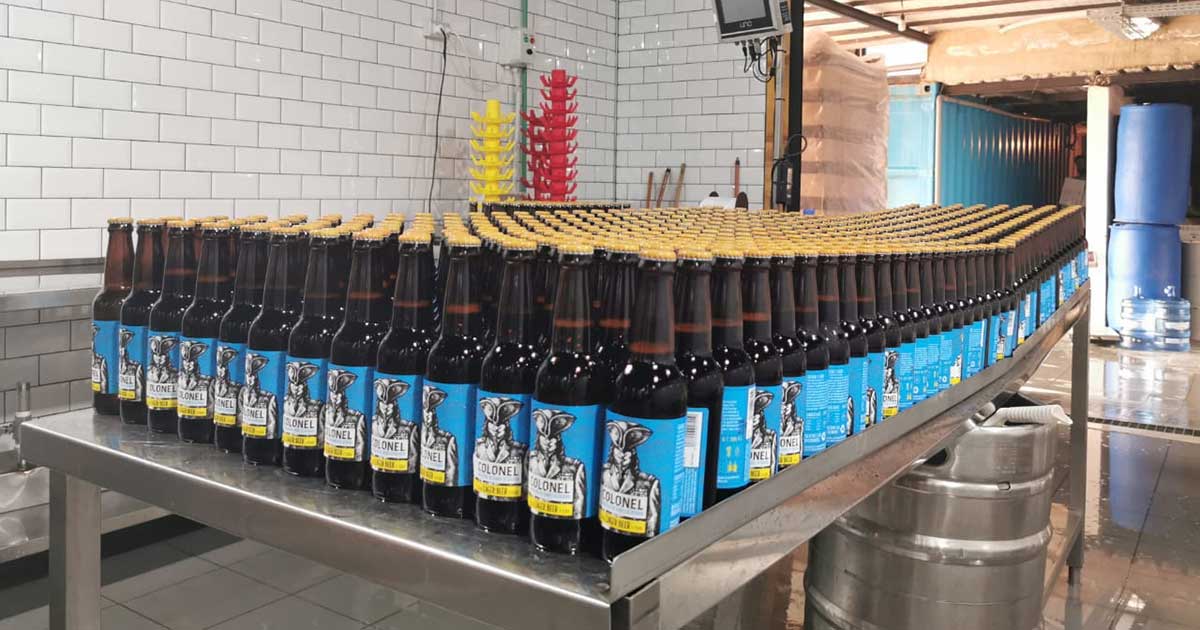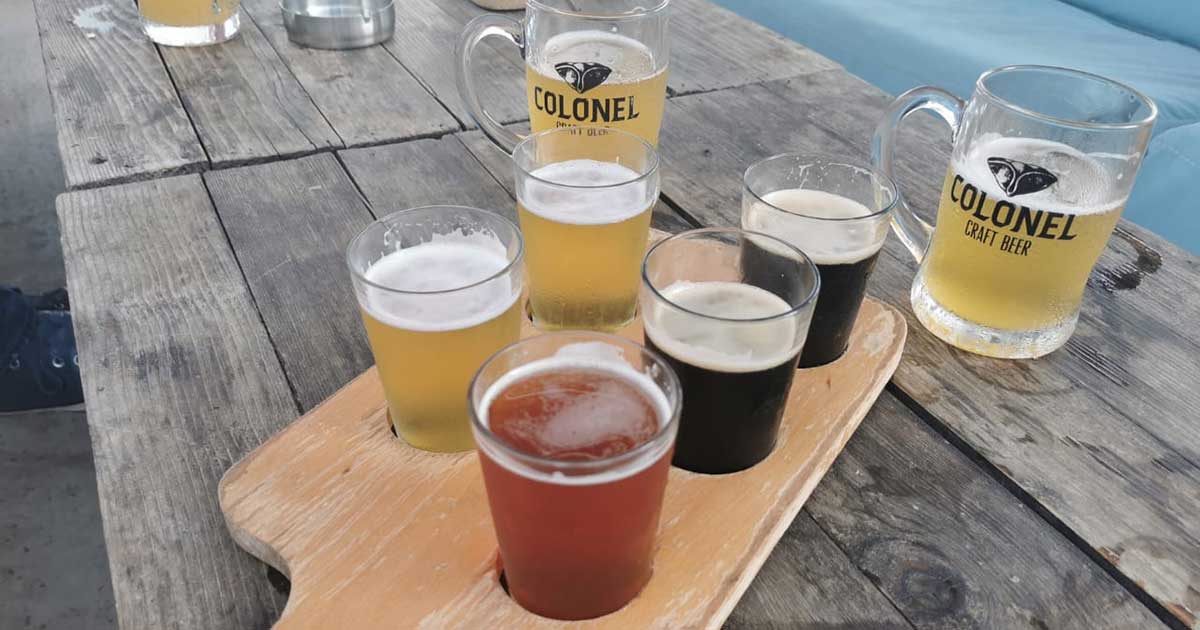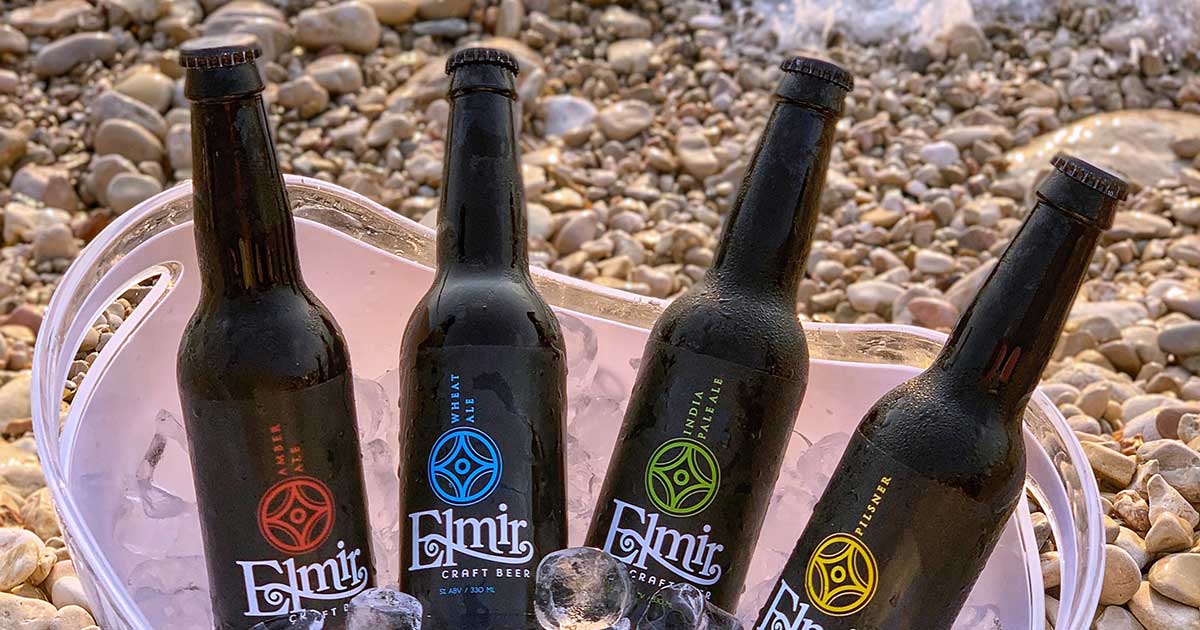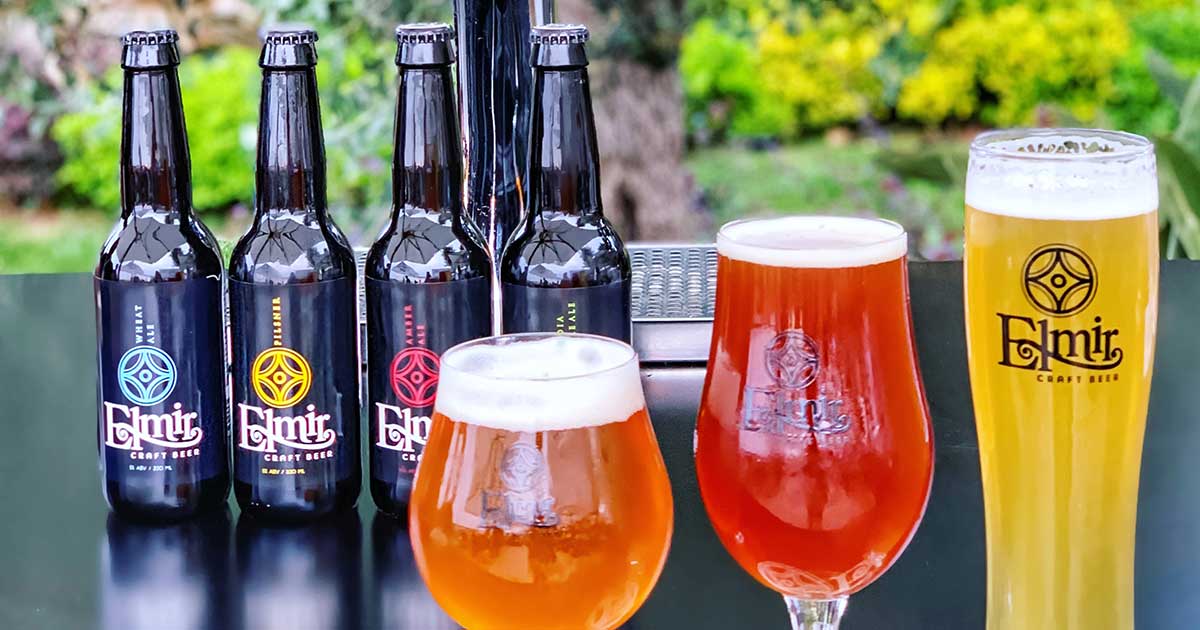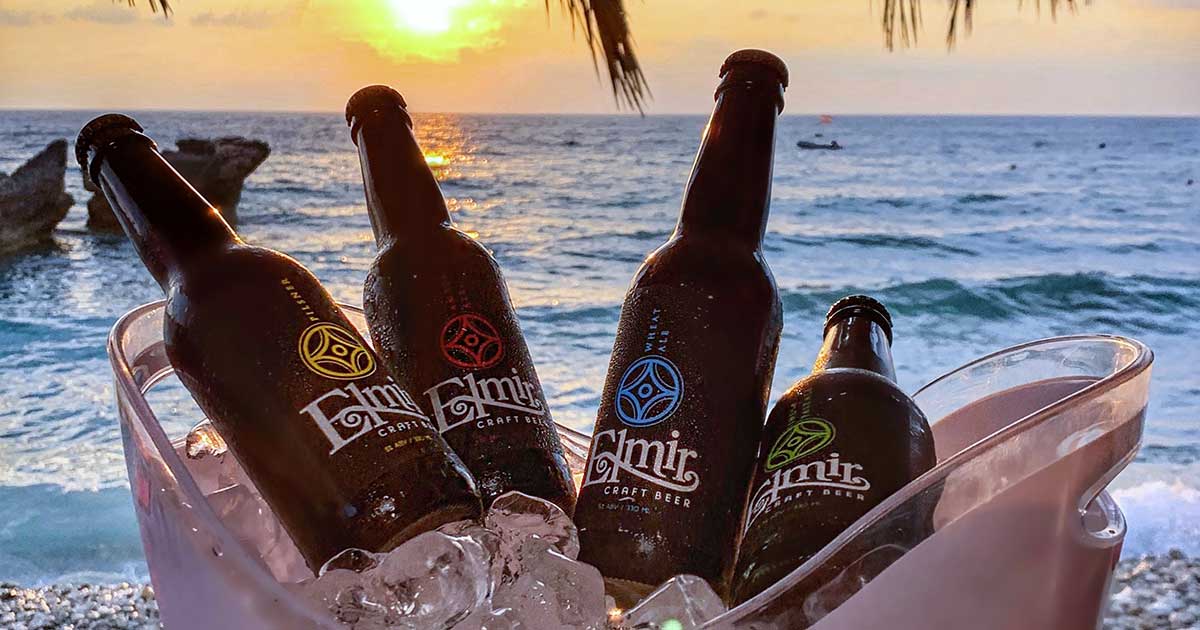LEBANON’S BEER STORIES
Beer brewing in Lebanon is almost as popular as distilling arak, but have you ever wondered how it all started? Here’s the story of the latest brands on the market and a few old time favorites
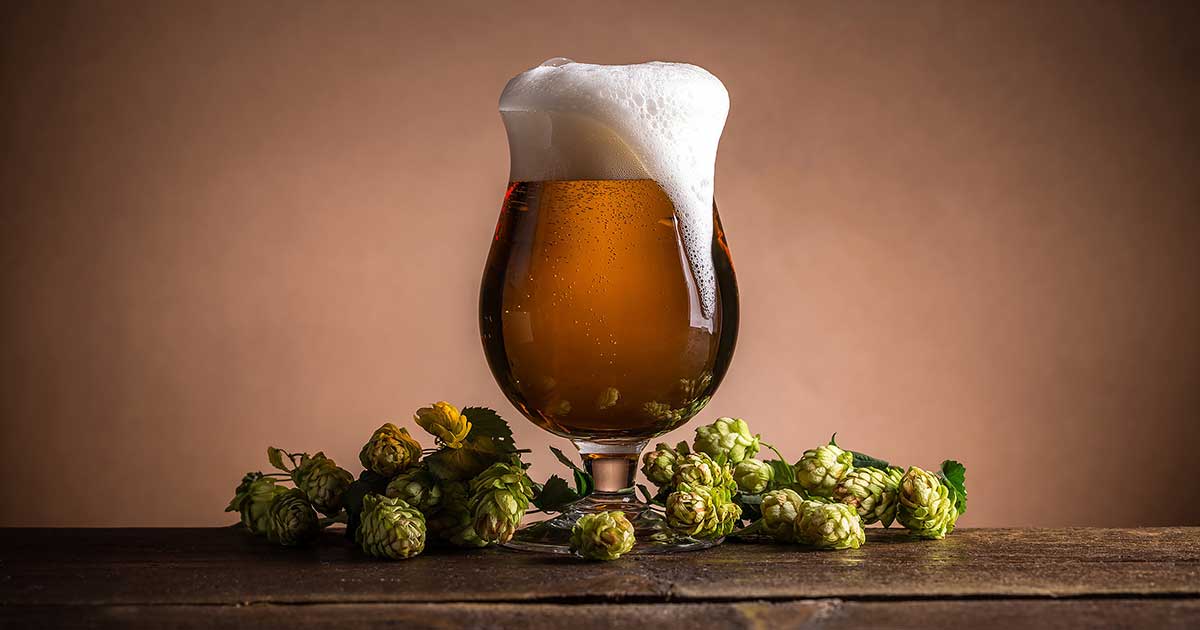
ALMAZA | BEIRUT BEER | 961 BEER | COLONEL BEER | ELMIR
ALMAZA
Lebanon’s first beer maker, Almaza, which first opened its doors in 1933, had its majority shares acquired by the Heineken Group in 2002, which led to the introduction of Almaza Pure Malt in 2007 and Almaza Light in 2012. To learn about why no new varieties have since been introduced and what effect have the new craft beer brands had, a company representative said, “Surprisingly enough, Almaza did not feel a huge change in the market after the introduction of craft and artisanal beers. It relatively kept its leadership position in market share. The reason being that most of the new establishment were/are producing lagers, ales and others. Almaza on the other hand is a pilsner, which is lighter and most suitable for our country’s warm Mediterranean weather and local taste preference. The other types of beer are stronger and more suitable for colder weathers hence their bigger success in Europe.”
BEIRUT BEER
Another brand synonymous to Lebanon, is Kassatly Chtaura, established in 1974 by President and CEO Akram Kassatly. Nayef Kassatly, the founder’s grandson and company CEO, who after extensive research introduced in 2014 Lebanon’s second mass-produced beer brand brewed to Pilsner’s strict and authentic purity laws called Beirut Beer said, “After extensive research, we arrived at the conclusion that offering consumers a smaller beer bottle would be quite a suitable idea especially since Lebanese people like to enjoy their beer as cold as possible. Also, we felt that offering consumers numerous choices would further strengthen our proposition. As a result, we crafted the 500 ml, 330, 250 and even went as far as creating the 150 ml bottle. Furthermore, we concluded that the Japanese twist-off bottle cap, though six times more expensive, is the best way to go. It affords consumers the ability to enjoy our product anywhere hassle-free, which makes for a smoother and more enjoyable beer-drinking experience. Though this significantly raised overhead, it on the other hand allowed us to sell more. Another invisible innovation to which we lent plenty of thought, is price point. In this context, we arrived at the conclusion that Lebanese, in general, dislike carrying coins. So, to further ensure a simple transaction when purchasing our beer, we set the price point of the variously-sized bottled as round figures, thereby doing away with the hassle of scurrying for change. While one may argue about the validity such factors have on the experience, we found that it truly does affect the choice of brand consumers make when they think of beer. This is clearly evidenced by the company’s gain of almost half of all bottles sold in Lebanon.”
961 BEER
“Throughout its journey, 961 managed to sustain its market position as, the first, and leading craft beer, despite facing internal and external challenges, imposed by economic and political factors. Over the years, the brand gained wide popularity on both the local and international scenes and acclaimed as a product of superior taste and quality. What truly makes me proud is the fact that the brand seemingly spearheaded the national craft beer movement and in turn inspired beer aficionados to take a chance in their own personal ventures. Our brand stands to exemplify the hidden potential and capability of the Lebanese individual as romanticizing and instigating as can be, to defy gravity almost and reset the status quo, to shine and prosper instead of simply remain bottled up. We believe that their entry into market empowers our position further by driving the overall growth in demand for craft beers,” said Kamal Fayad, of 961 beer.
COLONEL BEER
Despite the fact that it took the country’s second craft beer producer eight years to setup shop, what was about to ensue, has since proven to be an entirely novel approach the likes of which Lebanon had never seen. Jamil Haddad, Founder of Colonel Beer is a man, who simply put, loves beer as much as he enjoys the great outdoors. A native of Batroun, he spent his days enjoying this coastal city’s breathtaking white sandy shores and unlike many, he never wanted to leave. Shedding light on that period in his life, Haddad said, “I began experimenting then producing my own beer at home, which later drove me to travel to London and enroll in a beer-making program. Another factor that strengthened my resolve to open shop here is that I have always wanted to make a life for myself in Lebanon and seeing how Batroun is my birthplace, the decision to return was clear and the location was ideal for what I had in mind.”
Following many years of research, experimentation and lots of tinkering, he managed to rally a tremendous following to his cause and even got Batroun’s Municipality to rent him a piece of land right by the sea. The reasoning behind that decision was based on the notion that creating a local product would, ideally speaking, put that area on the map and in turn transform this place as an all year-round go to destination. In 2014, that is exactly what happened when Colonel Beer launched. The remarkable element about that young brand, which today has become a sort of Lebanese staple, is that it created a platform for like-minded individuals who share an affinity for nature and good beer.
ELMIR
While Haddad launched the brand out of love for the beverage and the craft, another more recent brand emerged, yet this particular one was based on a dare, a love for the sciences and family. “It’s the story of two cousins taking a brewing course together in London back in 2015. Noël Abi Nader was already a home brewer and I was pursuing a Master’s degree in Green Chemistry at Imperial College. We decided to take brewing to a professional level and Elmir Brewing Company was set up beginning 2018. The main driver, besides passion, was the challenge to establish a successful microbrewery in a highly competitive market,” said
Elmir’s Brew Master Chris Fadel. “The Lebanese beer market is slowly evolving and people’s taste palette is also widening as they become more familiar with a wider array of beers, be they imported craft beers or local craft beers. The market is still young and there are several areas that are untapped, which makes the adventure all the more interesting for us. Nonetheless, and to our surprise, our Indian Pale Ale is number one in terms of sales, followed by the Pilsner. It is significant since it means the Lebanese audience is getting ready for craft beers and, depending on the setting and mood, they choose to drink different styles!”


